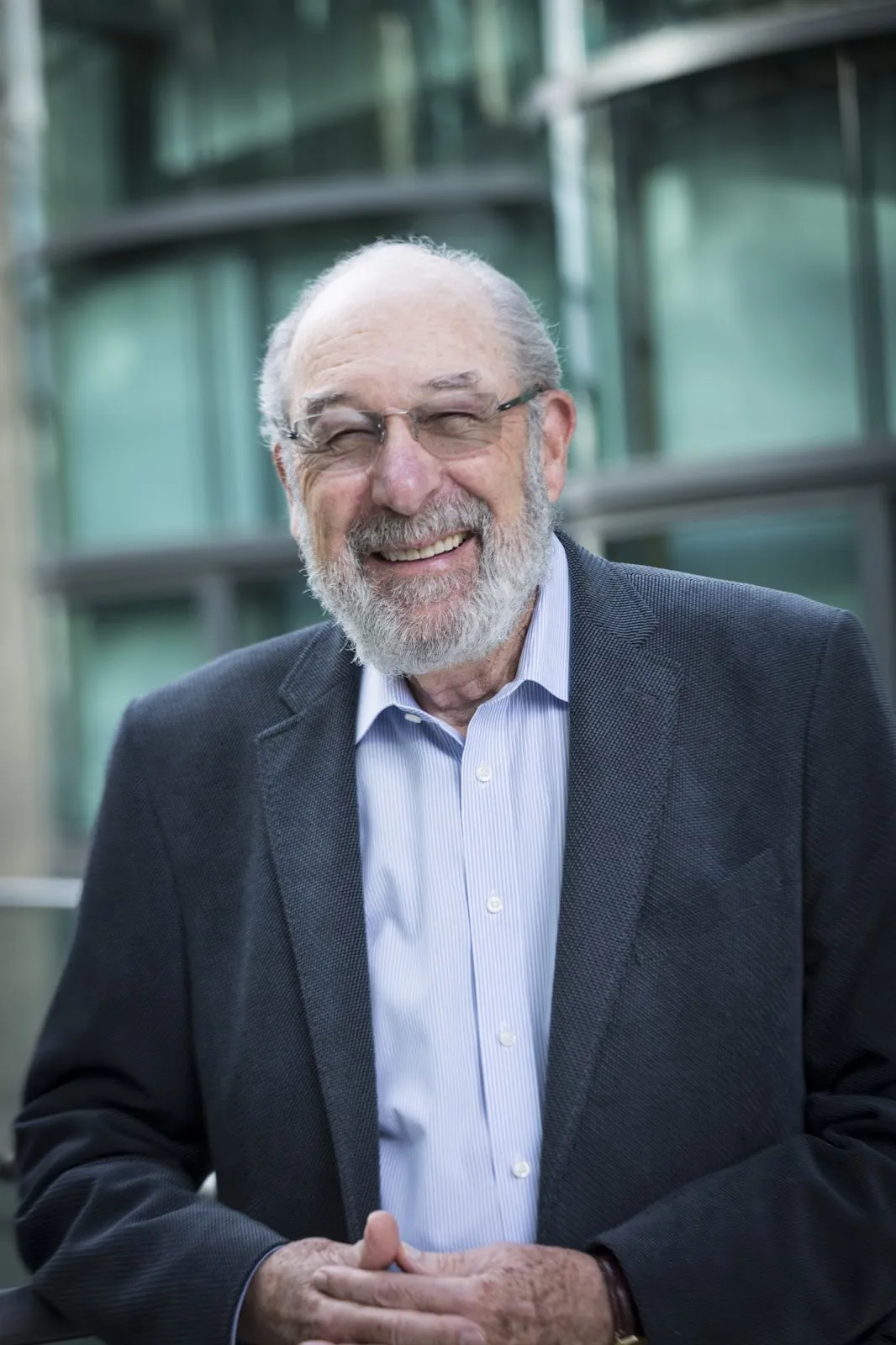As a student at Palo Alto High School in the late 1950s, Ronald Levy M.D. ’68 always viewed the higher education juggernaut on the other side of El Camino as a “mysterious place.”
However, after completing his undergraduate studies at Harvard, his attraction to Stanford’s unique five-year medical school curriculum that allowed time for research ultimately drew him back to the sunny skies of Palo Alto — launching a career that would propel him to the top ranks of medical academia. A member of both the National Academy of Medicine and the National Academy of Sciences, Levy, now a professor at the School of Medicine and associate director of the Stanford Cancer Institute (SCI), has published over 300 articles and received numerous awards for his groundbreaking oncology research.
“Ron is not just a leader in science and medicine, but also an academic leader,” said SCI Director Steven Artandi at one of Levy’s recent lectures, lauding Levy’s contributions during his 20 years running the oncology division. “He is really the prototype of a physician scientist, using basic science principles to make fundamental discoveries about disease and then translating those to bring discoveries to patients.”
Having spent the past five decades at Stanford, Levy has experienced the monumental growth and expansion of the medical faculty and facilities. At the same time, he appreciates that Stanford “is small enough that you can be involved in a lot of different activities all the time. There’s a lot of amazing opportunities within range.”
Levy’s research focuses on marshaling the immune system to fight cancer in the same way that it battles infectious diseases. As a medical student, he was interested in the immune system and how to control it to regulate cancers.
With his knowledge of the immune system, Levy produced cells, endowed with an indefinite lifespan, that generated monoclonal antibodies targeting cancerous cells. “The idea was to find antibodies that could be useful as drugs, and that set my whole career going,” he said.
Levy later developed antibody-based drugs, beginning with the breakthrough cancer medication Rituxan, which revolutionized the treatment of lymphoma, a type of cancer. In describing his career accomplishments, he cited the creation of a multitude of antibody-based drugs that now not only treat various cancers, but also other serious diseases.
“We see people living longer and being cured, which was not the case when I first began,” Levy said. “We still have amazing amounts of the problem to solve, but there have been parts of it that have been really amazingly successful. To see people living normal lives who would have died early on from their cancers — that’s very impressive.”
Levy attributed his interest in cancer research to his mentors, particularly Stanford professors Henry Kaplan and Saul Rosenberg, who successfully bridged medicine and science. Kaplan invented the linear accelerator technology to treat cancer through radiotherapy, while Rosenberg established the field of medical oncology.
“Dr. Ron Levy is one of the most remarkable and accomplished physician-scientists in the world,” said Philip Pizzo, former dean of the School of Medicine, in a 2009 interview. “He and his colleagues have virtually transformed our knowledge about tumor immunology and cancer biology, and his research has resulted in dramatic improvements in the treatment and survival of patients with lymphoma.”
For students interested in pursuing careers that combine medicine and academia, Levy emphasized the importance of a forward-looking perspective and unrelenting desire to improve existing medical treatments.
“We’ll never be satisfied with where things stand,” Levy said. “The idea is to be at the forefront, [to] understand the current state of [knowledge], and to always be asking the next question about what if we could find a better way of treating or diagnosing these diseases.”
Outside of his academic pursuits, Levy enjoys sports, music and the arts and traveling. This past summer, he visited Paris during the 2024 Summer Olympics. “I enjoy traveling when there is a reason to be in a place where you can interact with people who live and work in that place and understand it,” he said. “I’ve been to [Paris] many times, but I have never seen it as beautiful as it was during the Olympics.”
Of all the places on campus, Levy said that his favorite spot is his office and lab — a hub of research and discovery.
“That’s where my excitement is. That’s where the people I work with are, and that’s where the ideas are bubbling up,” he said. “I love seeing… whether things are working or not working, or needing to be figured out, puzzles to be worked out, or data to be analyzed or interpreted. It’s what I really enjoy.”
